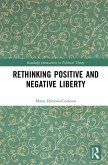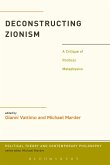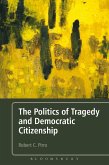This thought-provoking work analyzes concrete political events and reinterprets key concepts in modern political science. Building on the works of Kant, Badiou, Adorno, Hegel, and more, it posits that the dynamics of revolution can be encapsulated in the concept of negation, since a revolution essentially negates "what is" by rejecting the power in place.
The work argues that revolution is the true ground of Western democracy and that the proof of a true democracy is the activity of protest movements. It discusses how modern philosophy conceives political truth as revolutionary or eventful, and that one aspect of revolution is negativity, which fluctuates between inertia and melancholia. It examines the problem of revolution in the context of modern philosophy, providing a diagnosis of the historical developments since the fall of the Soviet Union to the Arab Spring, setting forth an original theory of revolution while shedding light on the notion of negativity in contemporary thought. This innovative work will appeal to anyone interested in political theory and political philosophy.
The work argues that revolution is the true ground of Western democracy and that the proof of a true democracy is the activity of protest movements. It discusses how modern philosophy conceives political truth as revolutionary or eventful, and that one aspect of revolution is negativity, which fluctuates between inertia and melancholia. It examines the problem of revolution in the context of modern philosophy, providing a diagnosis of the historical developments since the fall of the Soviet Union to the Arab Spring, setting forth an original theory of revolution while shedding light on the notion of negativity in contemporary thought. This innovative work will appeal to anyone interested in political theory and political philosophy.









